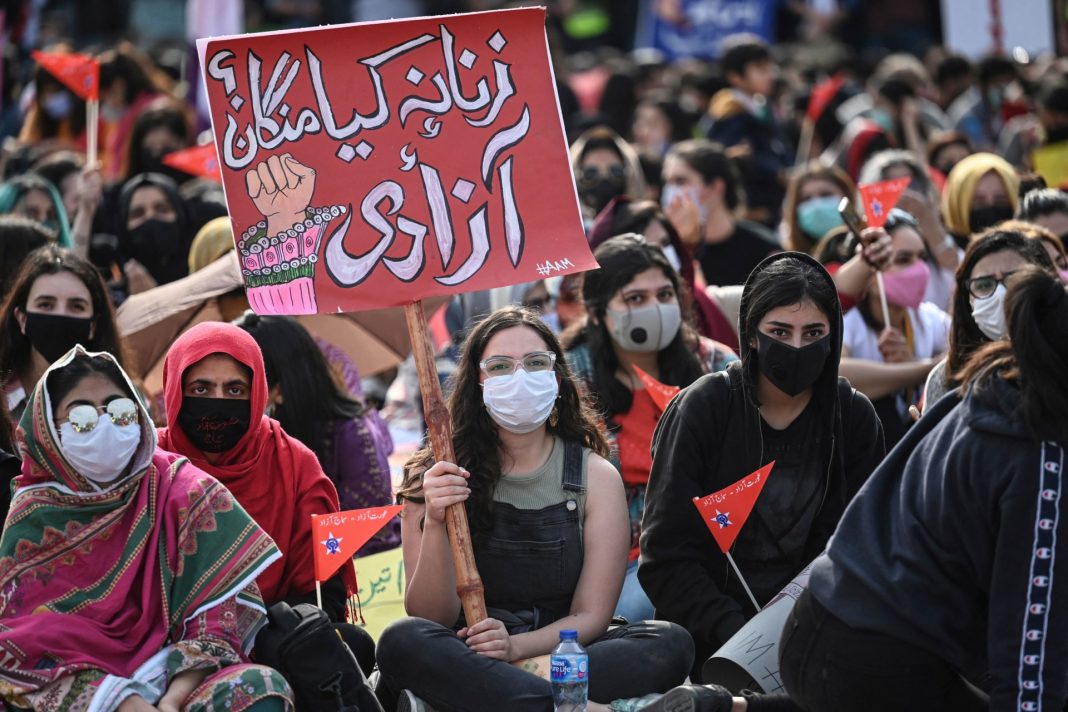The Sindh High Court (SHC) in Karachi issued notices on Monday to the provincial government and other relevant parties following a petition against the annual Aurat March held last week.
The petition was filed by a group of women lawyers who argued that the Aurat March promoted movements that were harmful to society and Islamic Shariah. They alleged that the event endorsed “dance and nudity under the guise of women’s freedom,” and criticized organizations like the Arts Council for allowing such activities.
A two-judge bench led by Chief Justice SHC Justice Aqeel Ahmad Abbasi presided over the case. The bench noted that the petition was submitted prior to March 8.
The petitioners’ counsel contended that they had requested an expedited hearing of the petition, which was not granted.
The court, while acknowledging that women enjoy complete freedom according to Islamic law, remarked that certain actions could have adverse effects on society.
The petitioners argued against the use of cultural centers and parks for the Aurat March and similar events, urging for the practice to be halted.
After hearing the arguments, the SHC issued notices to the Pakistan Electronic Media Regulatory Authority (PEMRA), the federal and provincial governments, the Arts Council, and other organizations associated with the Aurat March. They were instructed to submit their responses by March 19.
The Aurat March has been a contentious issue in Pakistan, with critics accusing organizers of promoting vulgarity and obscenity, while supporters defend it as a means to peacefully advocate for women’s rights and equality.
The debate surrounding the march has sparked discussions on freedom of expression, women’s rights, and the utilization of public spaces for such events.
Initially held in 2018 to commemorate International Women’s Day, the Aurat March has since grown into a broader social movement, drawing participants from various walks of life including women, transgender individuals, lawyers, doctors, artists, engineers, homemakers, trade union activists, and students.




